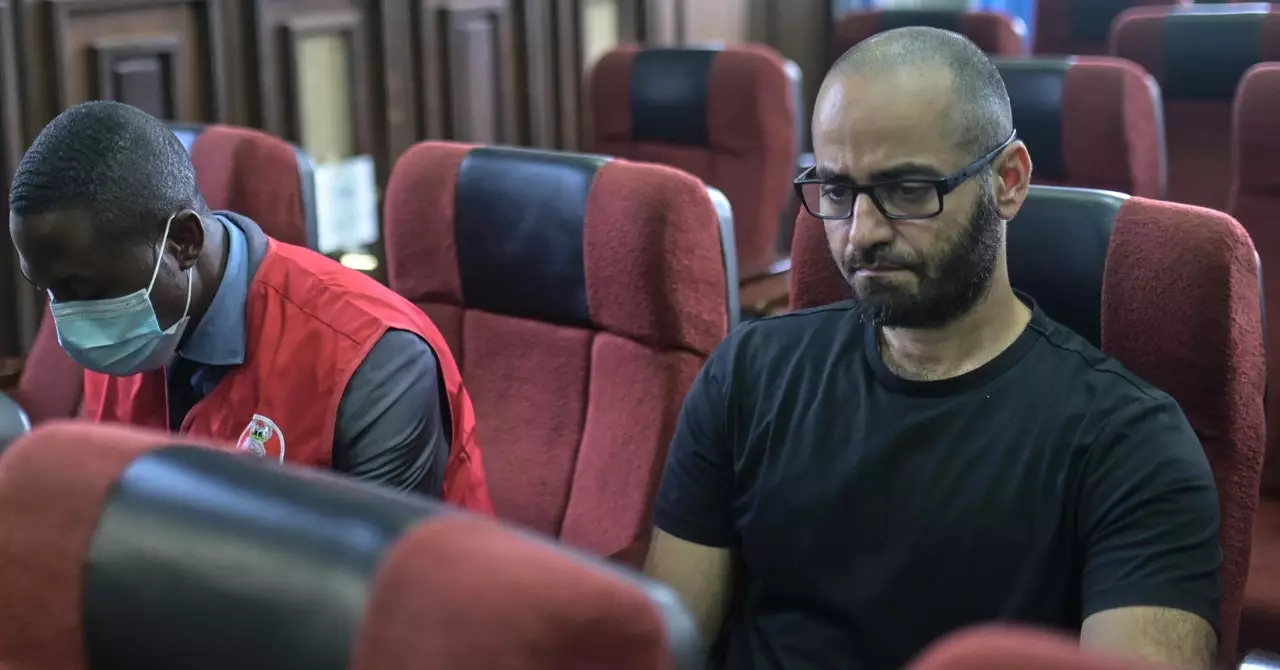Gurbanguly Gambaryan has made a name for himself within the rapidly evolving landscape of cryptocurrency. As a former IRS criminal investigator, he was one of the first to implement cryptocurrency tracing techniques to help law enforcement catch illicit activities associated with digital currencies. His transition to Binance—a global cryptocurrency exchange—signaled a new phase in his career. Gambaryan’s expertise was not only valuable for navigating the complexities of cryptocurrency but also fundamental in addressing the alarming issues of money laundering that have emerged with the popularity of digital assets.
Yet, the narrative took a shocking turn when he was detained in Nigeria, where he was invited by officials to discuss allegations surrounding Binance’s involvement in financial misconduct, specifically regarding claims of money laundering and its alleged impact on the Nigerian naira’s value. This meeting, intended to be a constructive dialogue, spiraled into a legal nightmare for Gambaryan, placing him at the center of a serious international dispute.
In February, Gambaryan’s brief visit to Nigeria took a dark turn, leading to his detention and eventual jailing. Initially held under puzzling circumstances, he was charged with money laundering and tax evasion—a shocked revelation from someone who had dedicated his career to combating such crimes. During his eight-month ordeal, his health deteriorated significantly, compounded by chronic back pain that necessitated immediate surgical intervention.
Gambaryan’s plight raised alarms, attracting the attention of U.S. officials and human rights advocates. The international outcry was amplified as details emerged about the conditions he faced in Kuje prison, where the medical care was reportedly inadequate. Disturbing images and accounts surfaced, including videos of Gambaryan increasingly reliant on crutches, illustrating the urgency of his medical needs. In a country already grappling with its financial crises, the sight of an American citizen limping into court only emphasized the unsettling human cost of the situation.
On Wednesday, the Nigerian court’s decision to drop charges against Gambaryan on medical grounds seemed to signal a breakthrough in the case. However, the reality remained stark; he was still in custody and had been returned to jail even after the ruling. This stark contradiction highlights the complexities and bureaucratic struggles that complicated Gambaryan’s release. The external pressure from both the U.S. government and human rights advocates grew louder, with calls for immediate action to secure his safe return.
As advocates await a definitive resolution, the overwhelming angst surrounding Gambaryan’s situation resonates far beyond the courtroom. Patrick Hillman, a former Binance executive and ally of Gambaryan, articulated the collective anxiety experienced by his supporters. The uncertainty, described as “clutching our shirt collars,” reflects a growing desire for clarity and resolution amidst the chaos.
While the legal fate of Gambaryan is in the spotlight, the ramifications extend much further. The ongoing investigation into Binance and its alleged financial misconduct will persist, igniting debates on corporate responsibility within the cryptocurrency sector. Authorities in Nigeria are compelled to reconcile the financial complexities involved with Binance while addressing the broader implications of cryptocurrency regulation.
Moreover, this situation echoes a looming question: how do nations navigate their relationship with major digital financial platforms while safeguarding human rights? As international observers meticulously scrutinize Nigeria’s handling of the case, it will be imperative for all parties involved to engage in meaningful discussions that address the critical intersections of technology, finance, and justice.
Gambaryan’s saga serves not only as a cautionary tale for those involved in the increasingly blurred lines of cryptocurrency but also as a testament to the pressing need for reform within the legal and regulatory frameworks governing digital finance. His safe return remains uncertain, yet it underscores a fundamental truth—human rights must be advocated for, even amidst the complexities of international finance and crime.

